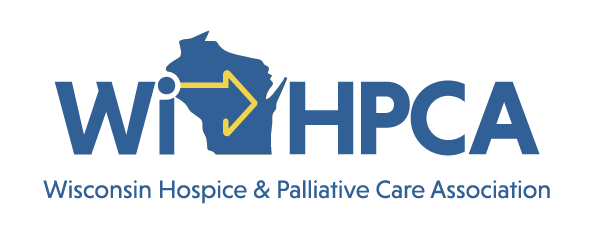By Hoven Consulting – WiHPCA’s lobbying firm
- Legislative Council Study Committee on Occupational Licenses - Update
The Legislative Council Study Committee on Occupational Licenses held its first hearing on August 2, 2022, at the Capitol building in Madison. The committee first received an overview from the Legislative Council Staff, then a briefing from the Legislative Fiscal Bureau, a briefing from the National Conference of State Legislatures (NCSL), and finally by the Wisconsin Department of Safety and Professional Services (DSPS).
Many of the questions for NCSL centered on the licensing process, interstate compacts, universal licensing, and reciprocal licensing. Questions for DSPS centered on staffing, the time required for licensure, issues with applications, legal reviews (crimes and ordinance violations) and additional barriers to timely and efficient license.
Following the testimony, study committee members discussed the following items:
- Duplication of background checks on applicants (credentials and hiring company)
- Insurance requirements for practice
- Number of applications being processed and approved (DSPS Stats)
- Reciprocal license, universal license and compacts
This committee’s next meeting will occur on September 27, 2022, in Madison. For more information about this committee, please visit the committee’s website.
- August 9 Primary Election Update
The following is a summary of the results of the August 9 primary election:
- As expected, Democratic Lt. Governor Mandela Barnes won his primary and will face incumbent Republican U.S. Senator Ron Johnson in November.
- In the most contested race for the U.S. House of Representatives in Wisconsin, incumbent Democratic State Senator Brad Pfaff won the Democratic primary and will face Republican Derrick Van Orden in western Wisconsin’s Third Congressional District. Retiring U.S. Rep. Ron Kind (D) currently represents this district.
- By a margin of 5 percent, Tim Michels prevailed in the Republican gubernatorial primary over former Lieutenant Governor Rebecca Kleefisch and will face incumbent Democratic Governor Tony Evers in November.
- In the race for Lieutenant Governor, State Rep. Sarah Rodriguez of Brookfield won the Democratic primary and State Senator Roger Roth of Appleton prevailed in a crowded Republican primary.
- In the State Assembly, all incumbent Republicans facing primary challengers won their respective races, including Assembly Speaker Robin Vos of Rochester, who faced Adam Steen. Adam had received the endorsement of former President Donald Trump in the closing weeks of the primary campaign over concerns related to the 2020 election.
- In the State Senate, incumbent Republican Senator – and Senate Majority Leader – Devin LeMahieu of the Sheboygan area prevailed against two opponents. Also, incumbent Republican Senator Van Wanggaard of Racine won his race against a primary opponent.
· New Marquette Law School Poll Released on August 17
On August 17, Marquette Law School released a new statewide political poll. The following poll findings may be of interest.
Gubernatorial Race
This poll, which was conducted from August 10-15 – after the August 9 primary election – asked Wisconsin voters their preference for governor:
- Governor Tony Evers (Democrat): 45%
- Tim Michels (Republicans): 43%
- Joan Beglinger (Independent): 7%
The August poll also asked respondents if they approved or disapproved of how Governor Evers is handling his job. His approval rating was 47%, his disapproval rating is 45%, and 8% did not have an opinion.
U.S. Senate Race
This poll asked Wisconsin voters about their preferred candidate for this year’s U.S. Senate race. The poll found the following:
- Lt. Governor Mandela Barnes (Democrat): 51%
- U.S. Senator Ron Johnson (Republican): 44%
The poll also asked respondents if they have a favorable or unfavorable opinion of Lt. Governor Mandela Barnes and U.S. Senator Ron Johnson. The poll found the following:
- Lt. Governor Mandela Barnes (Democrat)
-
- Favorable: 37%
- Unfavorable: 22%
- Haven’t heard enough: 30%
- Don’t know: 11%
- U.S. Senator Ron Johnson (Republican)
-
- Favorable: 38%
- Unfavorable: 47%
- Haven’t heard enough: 9%
- Don’t know: 6%
Issue Polling
The August poll also asked questions regarding various issues. One of the questions asked whether the state is headed in the right direction or not. The poll found the following:
- Right direction: 35%
- Wrong track: 56%
- Don’t know: 9%
This poll also asked how Wisconsinites felt about certain topics. Allowed responses: very concerned, somewhat concerned, not too concerned, and don’t know.
- Inflation: 94% were either very concerned or somewhat concerned
- Crime: 88% were either very concerned or somewhat concerned
- Public Schools: 88% were either very concerned or somewhat concerned
- Gun Violence: 87% were either very concerned or somewhat concerned
- Taxes: 85% were either very concerned or somewhat concerned
- Abortion Policy: 80% were either very concerned or somewhat concerned
- Climate Change: 69% were either very concerned or somewhat concerned
- Illegal Immigration: 68% were either very concerned or somewhat concerned
- Coronavirus: 55% were either very concerned or somewhat concerned
